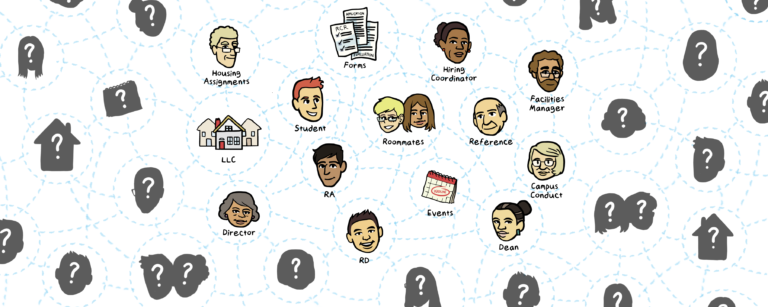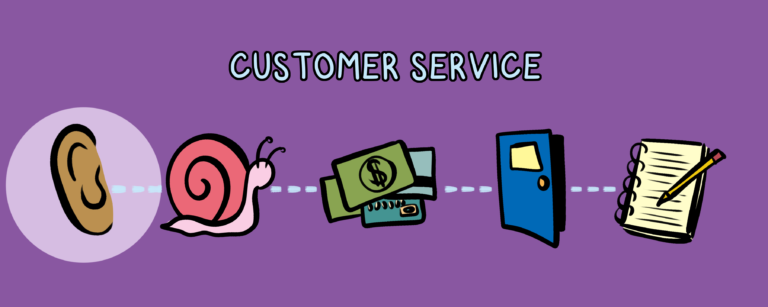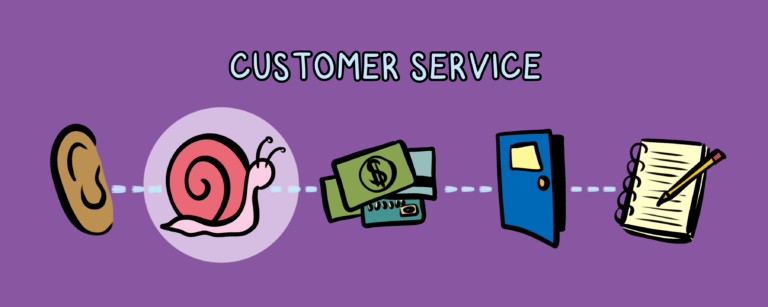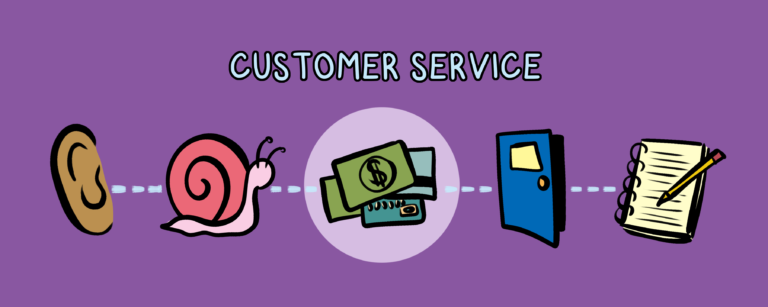 Written with Matt Venaas, Research Manager at Skyfactor
Written with Matt Venaas, Research Manager at Skyfactor
Room assignments are far from a fool-proof science. While we may implement strategies to inform our assignments, it can be difficult to assess what factors contribute to a positive assignment. Roommate assignments can amplify the success of an institution’s assignment process. When a student has a roommate concern, they talk to everyone about that concern. Their parents know, their professors know, their friends know, and your staff and colleagues are responsible for solving the issue. Roommate assignments can create a great deal of work for staff across the board; from RAs to front desk staff to assignments clerks.
Roommate Agreements
It’s our role as educators to help students understand how to proactively and effectively address current and potential problems to reduce harm. One method to showcase this education is by utilizing roommate agreements in shared rooms. Roommate agreements serve to start a conversation and introduce the RA as the first point of contact when things start to go sideways. In a recent Skyfactor survey, 73% of respondents completed a roommate agreement during the current academic year (Figure 1).
Figure 1. Roommate agreement completion
Roommate agreements vary in length and can cover a wide range of topics. Often, the agreements cover sleeping preferences (early bird vs night owl), study preferences (morning, afternoon, evening, or throughout the night), and guest preferences (need permission first, okay during the day, okay overnight). The aforementioned elements are essential to discuss when sharing a room with others. Housing and residence life programs have experienced success when asking roommates to discuss additional topics and document their thoughts in a formalized agreement.
Considerations
As you consider your roommate agreements for the upcoming semester, think about the following topics:
- Stress management strategies (need alone time, listen to music, etc.)
- Preferences for communicating feelings and frustrations (prefer to write notes, text, talk face-to-face, etc.)
- Social media guidelines (can you post images of each other or from your room?)
- Personal belongings, specifically the willingness to share, borrow, and/or use things that belong to your roommate
- Safety and security (will you let your roommate know if you’re not going to be home? Do you need to lock the door?)
Additionally, given that many are dealing with the ongoing effects of COVID-19, roommate agreements may want to consider provisions to address issues like wearing masks, limit on the number of visitors in a room/suite, cleaning, and communication about potential exposure and if someone has symptoms. If you are considering adding these questions, you may need to train your staff to deal with discrepancies in answers. Differing opinions could result in the need to move roommates; however it’s better to understand these conflicting opinions before they become an issue.
Taking a Proactive Approach
We know that the benefit of having these conversations in advance of conflict is that it provides an opportunity to engage in conversations and learn about each other without bringing in emotions fueled by anger, disappointment, or hurt. Many housing departments are requiring roommate agreements because they work. By setting expectations and having conversations before conflict arises, respondents were less likely to initiate a room change or change roommates.
Furthermore, data from Skyfactor’s Resident Assessment indicates that students who completed a roommate roommate agreement were more likely to report high satisfaction with their roommates, greater satisfaction with their overall housing experience, and more likely to indicate that they learned from their housing experience (including outcomes like resolving conflicts, solving problems, and understanding other residents by putting yourself in their place)(Figure 2). From this information, it’s clear that roommate agreements have a definite impact on holistic satisfaction of residence students.
Figure 2.
If you’d like to learn more about the possibilities of roommate agreements and assignments with eRezlife, please click here to learn more! If you’re already an eRezLife community member and want to talk about building your roommate agreement forms, click here to schedule a meeting.
To learn more about Skyfactor assessments, click here.
Welcome to the community. We’re glad you’re here.






